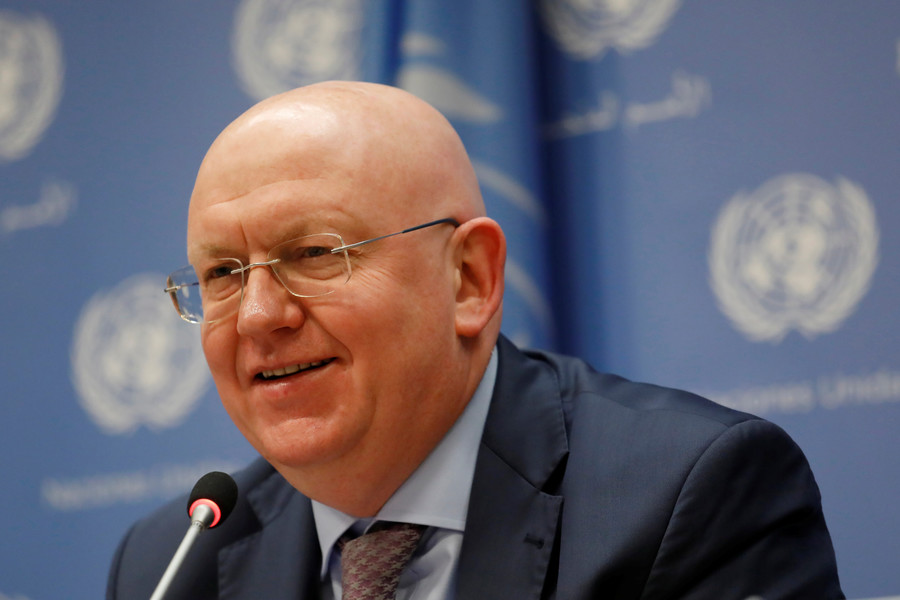- World
Russia Vetoes UN Resolution on Climate’s Impact on Global Security

Russia has vetoed a draft U.N. Security Council resolution that warns about the security implications of climate change, with its envoy calling it “unacceptable” for his government.
“We are against creating a new area for the council’s work which establishes a generic, automatic connection between climate change and international security, turning a scientific and socio-economic issue into a politicized question,” Russian Ambassador to the U.N. Vassily Nebenzia said just before casting his veto.
Twelve Security Council members voted to adopt the resolution Monday, while China abstained and India voted no.
“The force of the veto can block the approval of a text, but it cannot hide our reality,” said Ambassador Abdou Abarry of Niger, who along with Ireland’s ambassador, penned the draft.
India’s envoy asked what a resolution could achieve that the U.N. Framework Convention on Climate Change (UNFCCC) could not.
“Why is it that one needs a U.N. Security Council resolution to take action on climate change, when we have commitments under the UNFCC toward concerted climate action?” Ambassador T.S. Tirumurti asked.
In a rare occurrence, the text was co-sponsored by 113 countries from the U.N. membership, showing the majority’s belief that the council should consider the link between global warming and security issues.
While the Security Council has considered climate change in some of its work, this would have been the first time it singled out the subject for a resolution of its own.
“This resolution is about enabling the U.N. Security Council to address climate change with the tools it has within its mandate,” Ireland’s envoy Geraldine Byrne Nason said before the vote. “The council has already taken steps to integrate climate-related security risks into some of its mandated operations.”
Among the sponsors were several small island states in the Pacific, who say global warming and rising seas could put their countries underwater, as well as nations in Africa’s Sahel — Chad, Mali, Niger, Nigeria — where climate events including recurring severe droughts have contributed to intercommunal fighting.
U.S. envoy Linda Thomas-Greenfield said climate change is “a threat to every person, in every nation, on every continent” and clearly within the council’s purview.
“We categorically reject the notion that Security Council action undermines the Paris Agreement and the U.N. Framework Convention on Climate Change,” she said. “In fact, it does exactly the opposite. The Security Council can and should complement, support, and reinforce our collective work under the Paris Agreement and the UNFCCC in ways that are necessary to fight this security threat.”
China, India and Russia have drafted a resolution of their own focused on the situation in Africa’s Sahel, where climate has been linked to conflict. China’s envoy urged council members and the wider U.N. membership to support that text instead.
“China, Russia and India have jointly submitted a draft resolution focusing on security issues in the Sahel region, including climate change challenges,” Ambassador Zhang Jun told the council. “The aim of which is to effectively respond to the specific concerns of the countries in the Sahel region.”
No date has been announced for a vote on their text.
Speaking to reporters after the failed adoption, Irish Ambassador Byrne Nason said the Security Council must adjust to a changing world.
“This council will never live up to its mandate for international peace and security if it does not adapt,” she said. “It must reflect the moment we are now living in, the threats to international peace and security which we now face.”
U.N. Secretary-General Antonio Guterres has been at the forefront of global efforts to mitigate the impact of global warming. His spokesman said the secretariat would continue to integrate climate risks into its political analysis, conflict prevention and peacebuilding efforts.
Source: VOA





